Have you ever had that feeling where you just can’t look someone in the eye while they are talking to you? Do you feel a surge of anxiety when meeting someone’s gaze? If so, you may be experiencing eye contact anxiety. Identifying eye contact anxiety symptoms can help you understand how to get rid of eye contact anxiety.
What is Eye Contact Anxiety Disorder?
also known as ophthalmophobia, eye contact anxiety disorder is marked by a serious fear of making direct eye contact with another person. While some form of occasional uneasiness when making eye-contact is normal, irrational and excessive fear may be indicative of an anxiety disorder.
So what is eye contact anxiety? Researchers explain that “Self-reported fear and avoidance of eye contact are associated with social anxiety.” If you suffer from eye contact anxiety, holding eye contact with someone can trigger a wide array of complex emotions and symptoms.
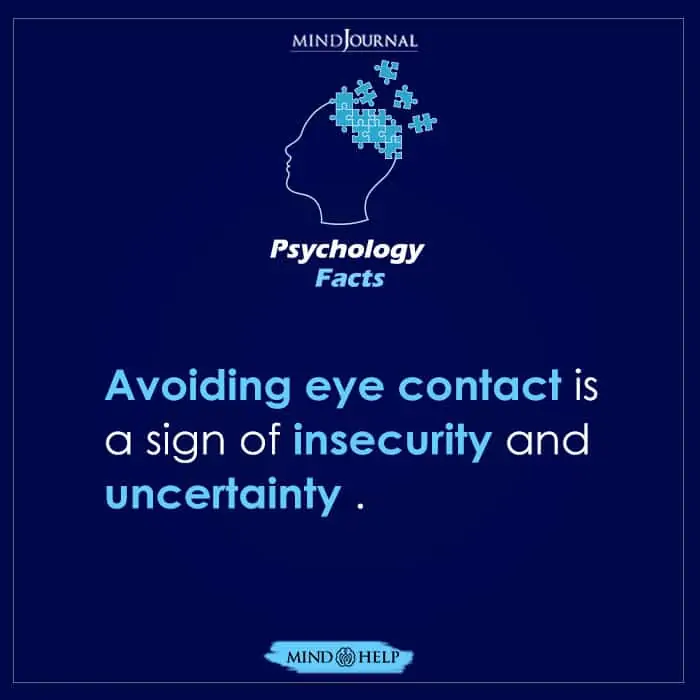
This distressing experience can make someone look for a way to escape or avoid such anxiety-ridden situations. This fear often stems from a fear of judgment, scrutiny, or feeling exposed, which can affect the development of meaningful connections with others.
Related: Everything You Need To Know About The Power of Eye Contact
5 Eye Contact Anxiety Symptoms You Must Know About
Here are some of the most common signs and symptoms of eye contact anxiety disorder –
1. Increased self-consciousness
People with eye contact anxiety usually have high levels of self-awareness during conversations. They may be hyper aware about their own body language, believing that everyone is analyzing and judging them, leading to a sense of discomfort.
2. Avoidance behaviors
People having eye contact anxiety resort to avoidance behaviors that include looking down, avoiding eye contact or focusing on non-verbal cues. These strategies are coping mechanisms used in reducing anxiety but they can affect effective communication.
3. Physical symptoms
Certain physical symptoms associated with eye contact anxiety such as rapid heartbeat, sweating, shaking, dry mouth and even panic attacks. These physiological responses are simply the body’s natural reaction to perceived threats or stressors.
4. Difficulty in expressing oneself
Another way eye contact anxiety disorder affects one’s confidence is by affecting their ability to express their opinions comfortably. They may not find enough words to express themselves fully, leading to frustration and feeling left alone.
5. Social withdrawal
Chronic eye contact anxiety can result in social withdrawal and isolation. The constant fear of being judged or rejected by others may prevent individuals from interacting socially with others, affecting their overall well-being, including mental health.
What Causes Eye Contact Anxiety?
Not sure exactly what causes eye contact anxiety? Here are some contributing factors that may lead to the development of eye contact anxiety –
1. Past experiences
Negative past experiences, such as receiving constant criticisms or feeling judged have been observed to lead to ophthalmophobia. The experience reinforces fear-based memories that last a lifetime.
2. Low self-esteem
People who don’t value themselves highly often or have a negative self-image suffer a great deal from eye contact anxiety. This is because they believe that others will see them negatively during eye contact, consequently increasing anxiety.
Related: How to Read Eyes And Know What Someone Is Thinking
3. Social anxiety disorder
In many cases, eye contact anxiety symptoms are often associated with Social Anxiety Disorder (SAD). In such cases, the fear of eye contact is often accompanied by a broader fear of being judged and embarrassed in front of others. This is what causes eye contact anxiety.
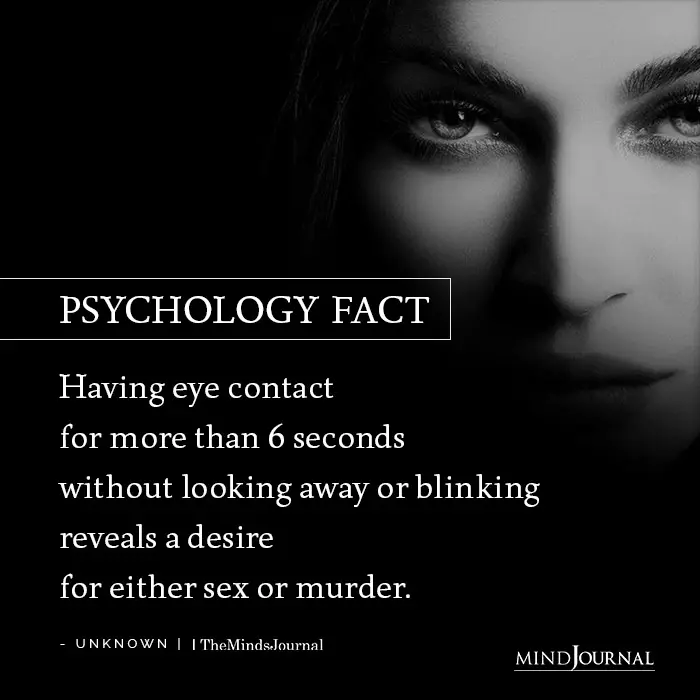
4. Cultural and societal influences
Cultural and societal pressures concerning eye contact can enhance anxiety over eye contact. For some cultures, prolonged eye contact is viewed as rude, while in others it is seen as an indication for attentiveness. These expectations are diverse and can heighten the fear among people from various backgrounds.
How to Get Rid of Eye Contact Anxiety
If you constantly struggle with maintaining eye contact with others, here are some simple yet effective tips on how to get rid of eye contact anxiety –
1. Gradual exposure
One effective strategy to address anxiety from eye contact is by gradual exposure. This can be done by practicing in a low-risk situation such as with close friends and family members and gradually increasing the time or intensity of looking into someone’s eyes as you become more confident.
2. Mindfulness and relaxation techniques
Some mindfulness and relaxation techniques, like deep breathing exercises & meditation, may be useful in relieving anxiety symptoms. These practices enable you to focus on a peaceful state of mind, so that your approach to eye-contact will be easier.
3. Cognitive-behavioral therapy (CBT)
Eye contact anxiety symptoms can be effectively resolved by the therapeutic approach known as CBT. In this approach, a trained therapist helps you identify negative thought patterns and helps you replace them with positive realistic ones. This is how to get rid of eye contact anxiety.
4. Social skills training
People who have fear of making eye contacts may find it helpful to undertake social skills training. Confidence during social interactions can increase if you learn effective communication skills such as active listening or assertiveness.
Related: How To Improve Communication Skills: 5 Proven Techniques
Takeaway
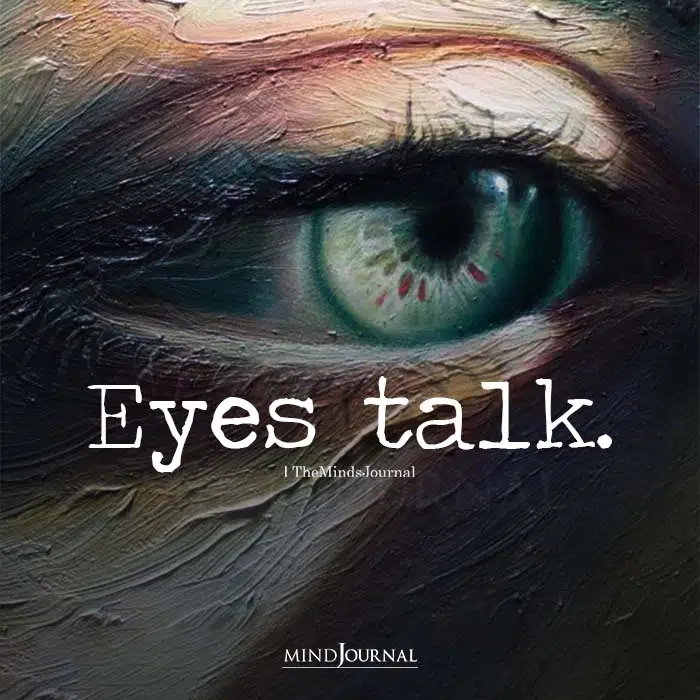
Eye contact anxiety is common for many people, but this should not affect our ability to communicate. By understanding eye contact anxiety symptoms and causes, we can overcome our anxious tendencies and build better and healthier connections with others.
Remember, overcoming eye contact anxiety is a journey that requires patience, self-compassion, and practice. With time and perseverance, you can learn to connect authentically and confidently with others.
Frequently Asked Questions (FAQs):
Do people with anxiety struggle with eye contact?
Yes, avoiding eye contact can be one of the symptoms of anxiety in some individuals.
Why am I uncomfortable with eye contact?
Some individuals find eye contact anxiety-ridden and uncomfortable as they may suffer from social anxiety or perhaps due to cultural differences.
What does it mean if you struggle with eye contact?
Difficulty maintaining eye contact may indicate social anxiety, low self-esteem, lack of confidence, insecurity, or discomfort with intimacy.
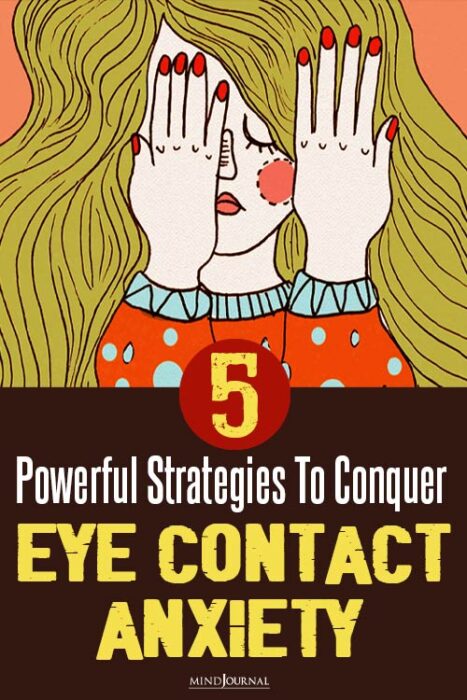
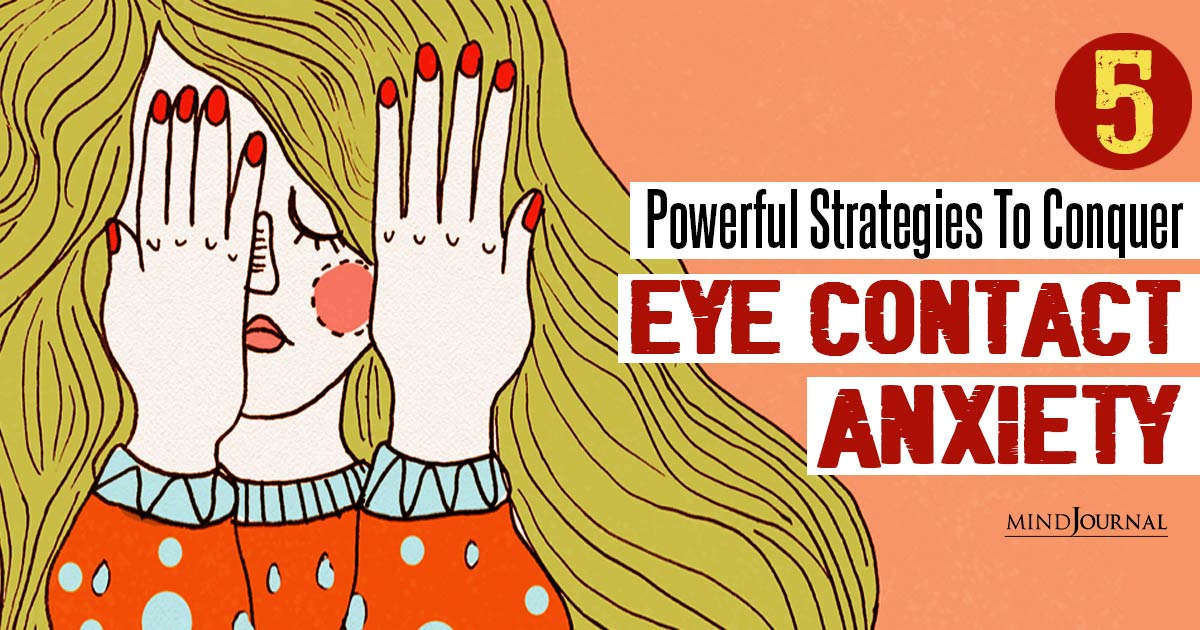







Leave a Reply
You must be logged in to post a comment.